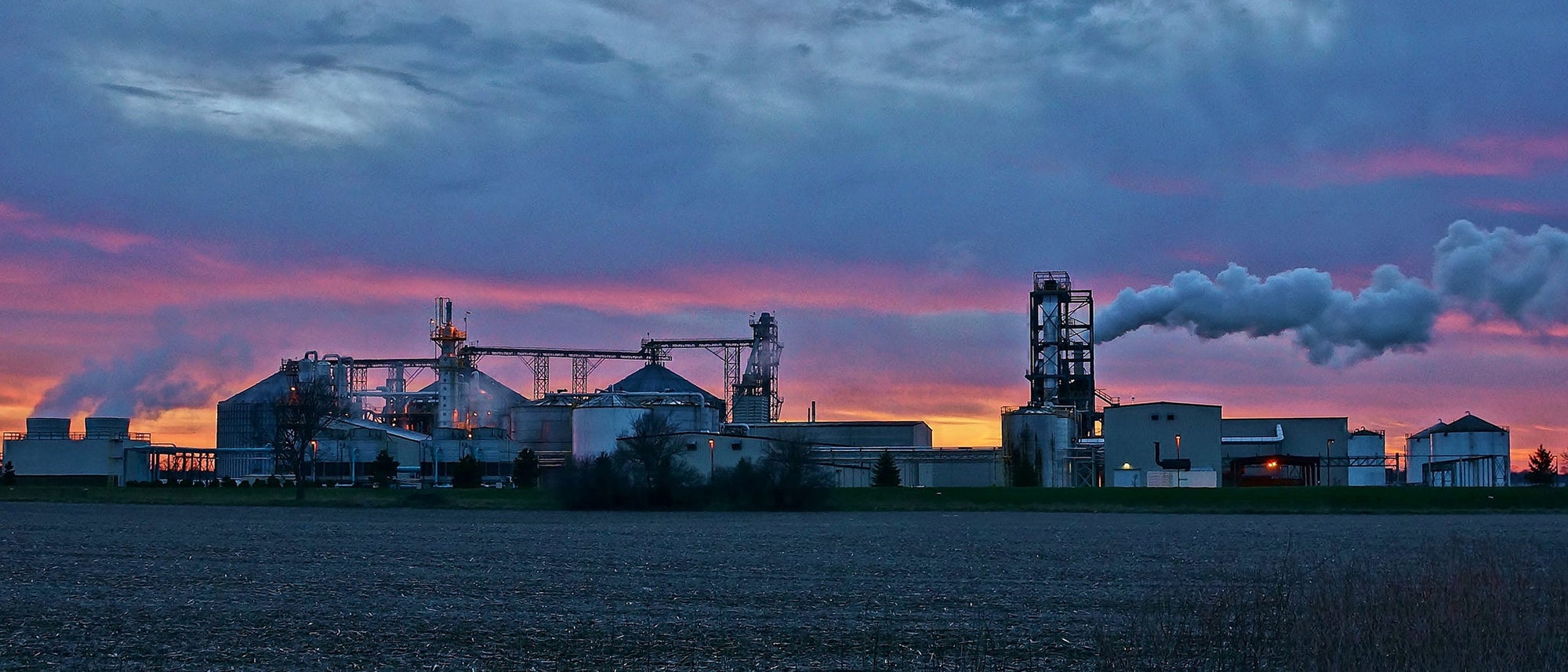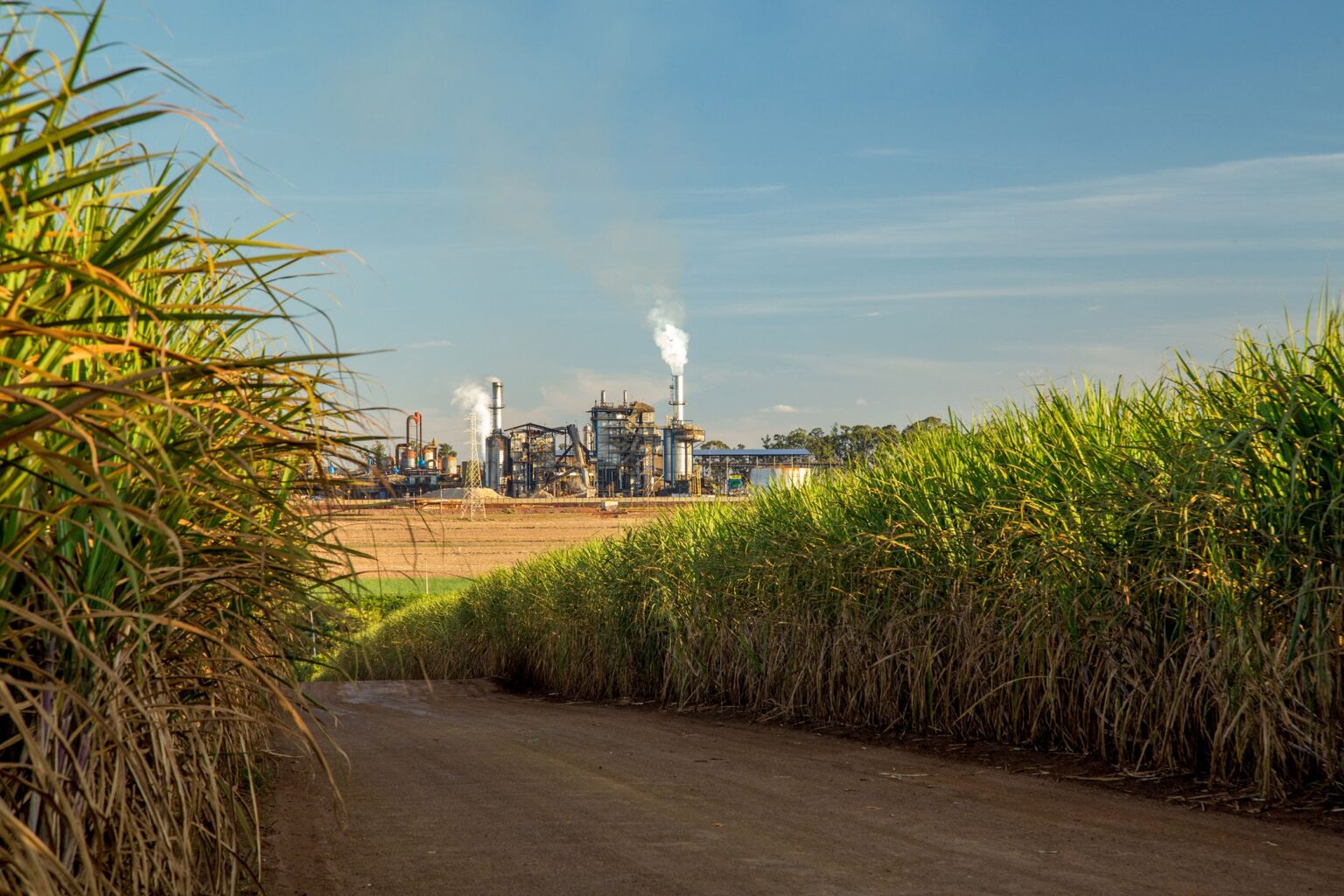Agricultural ethanol production has emerged as a key player in the movement toward sustainable energy, offering a range of economic, environmental, and social benefits.
As countries strive to reduce their carbon footprint and seek alternatives to fossil fuels, ethanol — particularly derived from crops like corn and sugarcane — has provided a renewable and cleaner-burning fuel source that supports rural economies and enhances energy security.
1. Boosting rural economies and supporting farmers
One of the most significant benefits of ethanol production is its positive impact on rural communities and agricultural economies. Ethanol production increases demand for crops such as corn, providing farmers with additional market opportunities. By creating a steady and consistent demand, ethanol production has helped mitigate the economic volatility that can sometime plague the agricultural sector.

Ethanol plants are often located in rural areas, where job opportunities can be scarce. These facilities provide direct employment to thousands of workers and stimulate local economies by fostering business growth in industries like transportation, equipment manufacturing, and crop production. A single ethanol plant can contribute millions of dollars annually to a local economy through wages, taxes, and indirect economic activity.
Moreover, ethanol production fosters innovation in agriculture, encouraging farmers to adopt more efficient and sustainable practices to increase yields. The adoption of precision farming, improved irrigation methods, and better crop rotation has been accelerated by the increasing demand for ethanol feedstocks.
2. Environmental benefits and carbon reduction
Ethanol is recognized for its ability to significantly reduce greenhouse gas emissions compared to conventional gasoline. When blended with gasoline, ethanol burns more cleanly, producing fewer carbon dioxide emissions and reducing the presence of harmful pollutants like sulfur and particulate matter. Studies have shown that ethanol can lower greenhouse gas emissions by 44 percent to 52 percent when compared to gasoline, making it a vital tool in combating climate change.
Furthermore, ethanol is biodegradable and non-toxic, which reduces the risk of environmental contamination in the event of spills. This contrasts sharply with fossil fuels, which can cause long-term environmental damage.
Ethanol production also promotes the use of agricultural byproducts, minimizing waste and contributing to a circular economy. For instance, distillers’ grains — a co-product of ethanol production — are used as high-protein feed for livestock, thereby reducing the need for imported feed ingredients and supporting domestic livestock industries. There are many byproducts that come from ethanol production!
3. Energy security and reduced dependence on oil
The expansion of ethanol production enhances national energy security by reducing dependence on imported oil. By producing fuel domestically, countries can decrease their reliance on volatile global oil markets, insulating themselves from price fluctuations and geopolitical instability. This not only strengthens national energy independence but also ensures a more stable and affordable fuel supply for consumers.
Blending ethanol with gasoline extends the fuel supply, making gasoline more affordable at the pump. In many countries, ethanol-blended fuels are marketed at lower prices, providing cost savings for drivers while simultaneously promoting cleaner air and supporting local economies.
4. Innovation and the future of ethanol
Agricultural ethanol production continues to evolve, with ongoing advancements in technology driving greater efficiency and sustainability. Second-generation ethanol, produced from non-food biomass such as agricultural residues, offers an exciting pathway to further reducing the environmental footprint of biofuels. This innovation expands the potential feedstock base, alleviating concerns about competition between food and fuel production.
Additionally, research into carbon capture and storage at ethanol plants presents new opportunities to achieve negative carbon emissions, further positioning ethanol as a cornerstone of future low-carbon energy systems.
Agricultural ethanol production stands as a testament to the synergy between agriculture and renewable energy, delivering far-reaching benefits that extend beyond the farm gate. From supporting rural economies and reducing greenhouse gas emissions to enhancing energy security, ethanol continues to play a crucial role in the transition toward a more sustainable and resilient energy future.
As technology progresses and markets expand, ethanol’s positive impact on both the agricultural and energy sectors is set to grow, reinforcing its importance in the global effort to combat climate change and foster economic development.
Michelle Miller, the Farm Babe, is a farmer, public speaker, and writer who has worked for years with row crops, beef cattle, and sheep. She believes education is key in bridging the gap between farmers and consumers.


:max_bytes(150000):strip_icc()/SoybeanLeaf2-CloseUp-2000-f7afb9c310f24d978d02d4e9e520c72f.jpg)
:max_bytes(150000):strip_icc()/7021201AATF0325_Tilespinner-05426429a0db47e9b28e475b23f40fe9.jpg)
:max_bytes(150000):strip_icc()/7042011201_236bb25a36_o-8d3f518e39014737992f02a90918138d.jpg)

